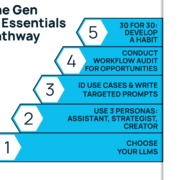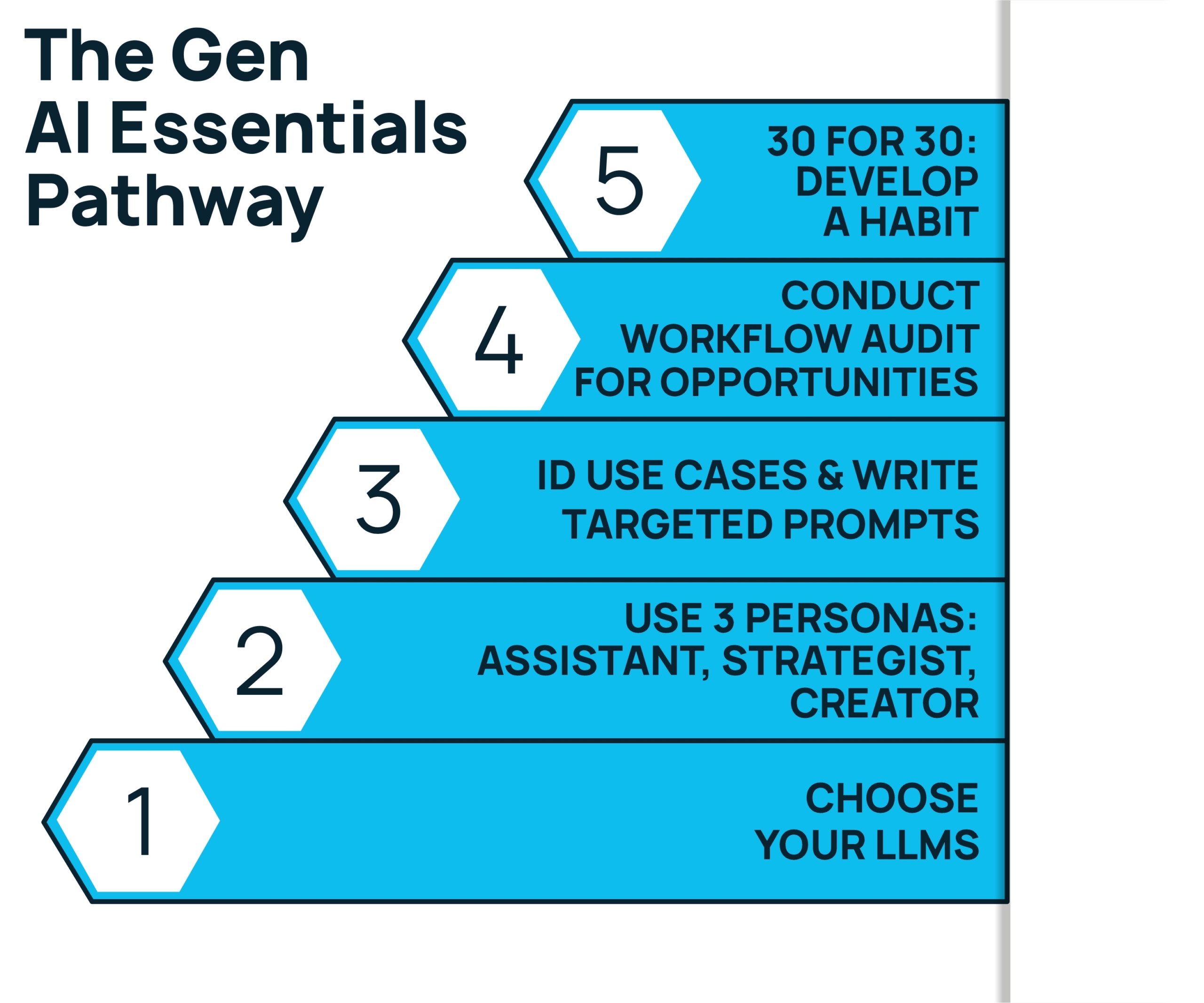Seizing the Gen AI Opportunity: Insights from the 2024 IBM CEO Study
CEOs Must Strike a Balance Between Caution and Courage to Harness the Power of Gen AI
CEOs who seek to position their companies to thrive in the years ahead should review the findings of the recently released 2024 IBM CEO Study and take appropriate action – particularly with seizing the immense opportunity Generative AI offers in building a competitive advantage.
This is the 29th annual release of the survey, which was taken by over 2,500 CEOs worldwide, reveals that Gen AI presents an “opportunity paradox” – it can drive immense productivity gains and uncover new avenues for growth, but also poses significant risks if not managed properly. CEOs must act with both caution and courage, accelerating transformation while uniting teams to deliver results responsibly.
A key challenge is that CEOs’ workforce isn’t as prepared for the Gen AI era as they believe. Significant retraining and reskilling will be needed, with 35% of the workforce requiring upskilling in the next 3 years. CEOs must accurately assess skills gaps and look to forward-thinking talent to redefine how work is done.
Gen AI also enables hyper-personalized products and experiences, but the customer isn’t always right about what they will want in the future. While co-creating with customers, companies must still innovate beyond current sentiment while using customer data ethically and transparently to maintain trust.
As strategic priorities shift, CEOs must be unsentimental and selective about partnerships, prioritizing expertise over long-standing relationships. Healthy debate among the C-suite is also crucial; CEOs must encourage diverse perspectives while providing clear rules of engagement for constructive conflict.
Internally, employees often resist the change Gen AI brings. CEOs must inspire adoption by communicating its value, providing ample training, and cultivating a culture of innovation. Importantly, there are no technology short-cuts – digital infrastructure investments must align with long-term business strategies, not just exciting new use cases, to provide a foundation for growth.
The study identified a group of top-performing CEOs whose organizations excel in areas like digital infrastructure, innovation, talent development, ecosystem partnerships and strategy execution. These leaders provide a model for the capabilities required to fully harness Gen AI.
Looking ahead, CEOs have ambitious plans for the technology. While less than half are focused on Gen AI pilots today, 49% expect to leverage it for growth by 2026. This will require taking calculated risks and leaps of faith to avoid being left behind.
Ultimately, successfully adopting Gen AI demands that CEOs confront difficult realities head-on – from talent gaps to legacy technologies to resistance to change. By taking an eyes-wide-open approach while moving with agility and speed, CEOs can seize the Gen AI opportunity and lead their organizations to outperform.
Here are the top takeaways and findings from the report, courtesy of ChatGPT4o.
The Top 10 Takeaways from the IBM 2024 CEO Study are:
- Gen AI has the potential to drive unprecedented productivity gains and reveal new growth opportunities, but also poses significant risks. CEOs must strike the right balance between caution and courage while moving faster than ever.
- The CEO’s team isn’t as strong as they think when it comes to leveraging Gen AI. Significant workforce retraining and reskilling will be required, and CEOs need to accurately assess skills gaps.
- Customers don’t always know what they want. Gen AI enables hyper-personalized products and experiences, but companies must use customer data ethically and be transparent to maintain trust.
- CEOs must be selective about partnerships, prioritizing expertise over sentimentality. Changing strategic priorities demand reconfiguring core business partnerships.
- Healthy debate among the C-suite is crucial for good decision-making. CEOs must set ground rules to keep conflict constructive and leverage the diverse expertise of their leadership team.
- Employees are resistant to change brought by Gen AI. CEOs must help them see its value, provide training, and create a culture that inspires adoption of new technologies.
- There are no technology short-cuts. CEOs must invest in digital infrastructure aligned with long-term business strategies, not just exciting new use cases.
- Top-performing CEOs’ organizations have more effective digital infrastructure, innovation, talent development, ecosystem partnerships and strategy execution compared to peers.
- Over the next few years, CEOs will increasingly leverage Gen AI to drive efficiency and growth. By 2025, over half expect to use it for expansion.
- Taking risks with Gen AI is necessary to remain competitive. CEOs on a “burning platform” must take a leap of faith while building organizational agility to pivot as priorities shift.
The Top 10 Findings from the IBM 2024 CEO Study are:
- 67% of CEOs say the potential productivity gains from automation are so great that they must accept significant risk to stay competitive.
- 62% of CEOs say they will take more risk than the competition to maintain their competitive edge.
- 72% of top-performing CEOs agree that competitive advantage depends on who has the most advanced Gen AI.
- 65% of CEOs say their organization’s success is directly tied to the quality of collaboration between finance and technology functions.
- 64% of CEOs say their organization must take advantage of technologies that are changing faster than employees can adapt.
- 61% of CEOs say they’re pushing their organization to adopt Gen AI more quickly than some people are comfortable with.
- 59% of CEOs say they aren’t willing to sacrifice operational efficiency today to drive greater innovation.
- 55% of CEOs say changing strategic priorities demand reconfiguring core business partnerships.
- 51% of CEOs are hiring for Gen AI-related roles that didn’t exist last year.
- 49% of CEOs expect to use Gen AI to drive growth by 2026, up from less than half focusing on generative AI pilots today.
The findings of this study underscore the urgency for CEOs to act swiftly. Priority steps include implementing Gen AI training for knowledge workers and leveraging this technology to optimize individual workflows and company-wide processes. CEOs should then harness Gen AI to drive key performance indicators such as revenue growth, cost management, margin expansion, and enhanced customer and employee experiences. As their expertise grows, CEOs will spearhead efforts to utilize Gen AI in developing transformative products, services, and business models, while simultaneously reshaping organizational operations and culture. The imperative is clear: those who most effectively deploy this critical technology will emerge as the winners of the future.







